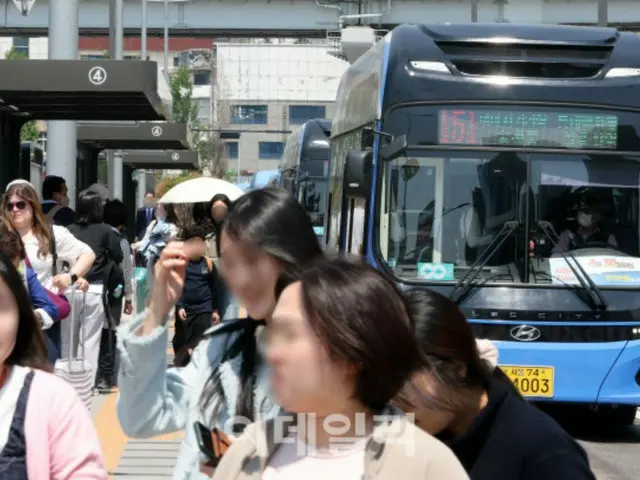The union and management will hold their second coordination meeting to discuss wage increases and other issues at 5 p.m. on the 29th at the Seoul Regional Labor Committee in Yeongdeungpo-gu, Seoul.
The bus labor union and the Seoul City Bus Transportation Business Union, which represents the operator, were unable to bridge the gap in wage negotiations this year, and on the 14th
The company has filed an application for adjustment with the Seoul Regional Labor Relations Commission and is in the process of filing the application. The deadline for adjustment is the 29th, and if the wage negotiations ultimately fail, the union is threatening to go on strike starting at 4 a.m. on the 30th.
The union has teased that it will launch a full-scale industrial action. The union's demands are that the bimonthly bonus be included in the regular wage, and that the retirement age be extended from the current 63 to 65.
The union has 64 member companies, of which 61 are companies subject to collective bargaining that can participate in industrial action. On the other hand, the employers are promoting wage system reforms in the direction of lowering regular wages.
The Seoul Metropolitan Government published an article on the afternoon of the 29th entitled "20% annual wage increase with Seoul citizens' hard-earned tax money is inappropriate"
In a press release, the union said, "As the union claims, the change in the legal precedent regarding regular wages will result in a wage increase of more than 10%, and if an additional 8.2% increase in basic wages is reflected on that, the total base salary will ultimately be 10%.
"We are seeking a 20 percent wage increase for all buses," he said. "The current labor-management negotiations are difficult, as the cumulative deficit from the quasi-public system of city buses is already approaching 1 trillion won (approximately 100 billion yen).
According to the Seoul Metropolitan Government, since the implementation of the quasi-public system, labor and management have been negotiating annually on the total amount of labor costs for city bus drivers.
The average annual wage increase rate was about 4%. As a result, the proportion of driver labor costs in the total cost of bus transportation will increase from 50.8% in 2008 to 68.3% in 2024.
However, on December 19th of last year, the Supreme Court changed its previous ruling regarding ordinary wages, which led to the issue of wage increases arising regardless of labor-management agreement.
The labor union argued that based on this Supreme Court ruling, wages should be increased by more than 10% by incorporating regular bonuses into regular wages.
If regular bonuses are included in the regular wage, the amount of various statutory allowances such as overtime pay will also increase. The union has also proposed an 8.2% increase in basic wages as part of its negotiations.
If all drivers are accepted, the average wage of drivers will increase from 62.73 million won (approximately 6.23 million yen) to 78.72 million won (approximately 7.82 million yen). In this case, the total labor cost will be
The amount is expected to increase by about 300 billion won (about 30 billion yen) per year, and the city of Seoul claims that this will result in a serious financial burden.
On the other hand, the business side said, "The existing wage system was established through negotiations between labor and management on the premise that bonuses were not included in regular wages.
If the Supreme Court's legal theory has changed, the wage system must be revised.
According to the explanation from the labor union, the purpose of the Supreme Court ruling is not to maintain the existing wage system, and the Ministry of Employment and Labor (equivalent to the Ministry of Health, Labor and Welfare) is also revising the "Labor-Management Guidance Guidelines for Ordinary Wages" to improve the labor-management system.
The government is said to be encouraging a restructuring of the wage system through dialogue. The union went on strike the morning after wage negotiations between labor and management broke down last year. This was the first time the union had gone on strike in 12 years, since 2012.
However, through arbitration by the city of Seoul, the labor and management agreed to a wage negotiation with a 4.48% wage increase and 650,000 won (approximately 65,000 yen) holiday allowance at around 3 p.m. on the same day.
The strike was also halted in 11 hours and normal operations resumed. Furthermore, in 2022, a dramatic agreement was reached the morning after the final day of negotiations, and in 2023, a strike was concluded about 20 days before the start of the strike.
Based on this precedent, it is highly likely that this year's negotiations will also be decided at dawn. Meanwhile, Seoul city's buses are operated under a quasi-public system.
This is a system that ensures public service, such as by maintaining routes in areas with poor transportation access, in exchange for compensating operators for losses.
2025/04/29 21:30 KST
Copyrights(C) Edaily wowkorea.jp 78

